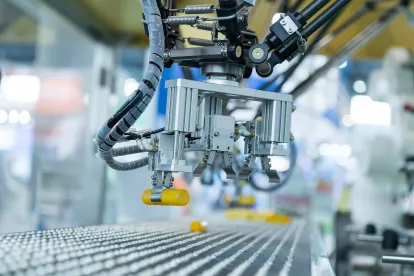In their search for skilled workers, manufacturers should not overlook countries with which the United States maintains a treaty. Such treaty countries offer an additional avenue to find skilled, non-professional employees.
Most companies in the manufacturing industry are facing worker shortages in skilled, but not necessarily professional, positions, requiring creative solutions to source additional talent. These companies may turn to contractors or subcontractors to assist in their manufacturing projects. In some cases, these contractors or subcontractors may be foreign-owned — particularly in sectors where other countries’ industries are highly competitive, such as the German automotive industry or the Japanese electronics industry, among other sectors.
Many employment-based visas, such as the nonimmigrant H-1B or TN visas, are not feasible options for skilled, non-professional workers, as these visas require the positions to be “professional” or require at least a bachelor’s degree.
Manufacturing companies, however, may have additional options to find skilled workers by utilizing international investments from “treaty countries.” These are countries with which the United States maintains a treaty of commerce and navigation or a qualifying international agreement. The United States maintains treaties of commerce and navigation with several dozen countries around the world — qualifying these countries for E-1 or E-2 visas.
Certain foreign-owned manufacturing companies in the United States may be able to source additional labor from a previously untapped talent pool and hire skilled labor from abroad. Manufacturing companies that contract or subcontract certain portions of their work to certain foreign-owned companies also may benefit from this option.
E-1 visas are reserved for foreign individuals or organizations engaged in trade principally between the United States and the treaty country. E-2 visas are reserved for foreign individuals or organizations that have invested or are actively in the process of investing a substantial amount of capital in an enterprise in the United States. Certain employees also possessing the nationality of the treaty country similarly may be eligible for this classification, including executives, supervisors, or employees with special qualifications that make them essential to the operation of the enterprise. 8 CFR 214.2(e)(3)(ii).
Because “special qualifications” is defined broadly, employees in lesser capacities may be considered essential to the successful or efficient operation of the treaty enterprise. Crucially, the immigration regulations take into account whether the skills and qualifications are readily available in the United States. In industries that have been hit hard by worker shortages, a larger number of professions than ever before may meet these criteria.
E-1 and E-2 visa holders may be admitted to the United States for two years and can continue to extend their stay in two-year increments for as long as the underlying trade or investment is maintained and as long as the employee continues to be employed in an executive, supervisory, or essential capacity. Moreover, E-1 and E-2 employees may bring their family with them as dependents, and dependent spouses may obtain work authorization, as well.





 />i
/>i

